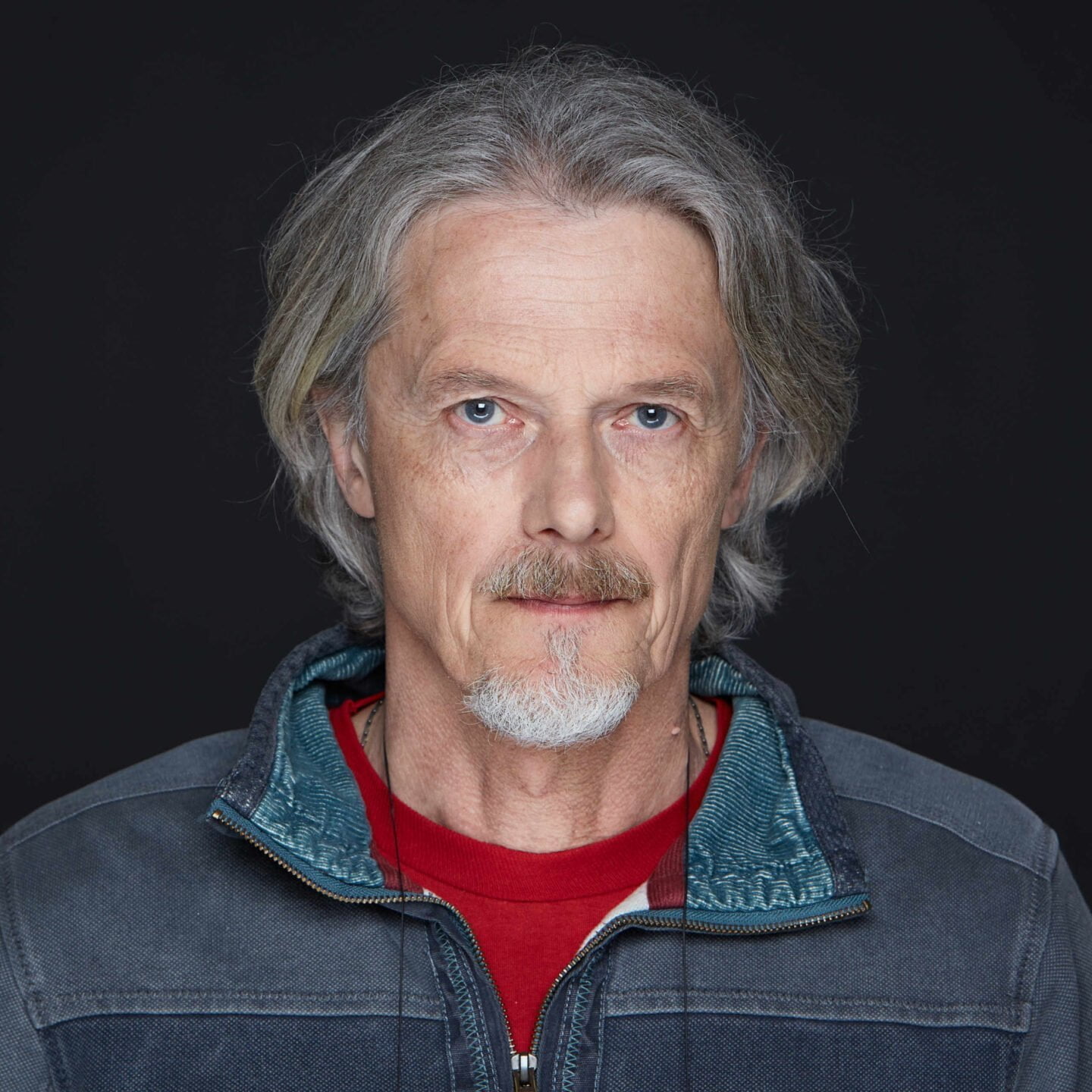
Eugenijus Ališanka
- Lithuania
- Zu Gast beim ilb: 2006, 2022
The Lithuanian poet Eugenijus Ališanka was born in 1960 in Barnaul, Siberia, the place where his parents had been exiled. After the family’s return to their home country, he grew up in Vilnius, where he studied Mathematics, and upon completion of his studies became a member of the academic staff at the Culture and Art Institute. In 1991 he published the first volume of his almanac »Miestelėnai« [t: Towndwellers; second and third volume in 1995 and 1999], followed in the same year by his first collection of poems, »Lygiadienis« [t: Equinox], for which he was awarded the Zigmas Gėlė Prize for the most promising poetic début of that year. Following his residency at the Iowa Writers’ Workshop his second collection of poems, »Peleno miestas« [1995; Eng. »City of Ash«, 2000], was translated into English. Selections of his work – four volumes of poetry and two books of essays – have also been published in French, German, Swedish, Polish, Russian and Finnish.
Ališanka worked as director of foreign programmes for the Lithuanian Writers’ Union from 1995 to 2002, also organising the festival »Poetry Spring«. From 2003 until 2015 he was editor-in-chief of the »Vilnius Review«, which presents contemporary Lithuanian literature in English. He has, moreover, become established as a translator, translating among others Zbigniew Herbert and Wisława Szymborska from Polish and Aleš Debeljak from Slovenian.
His own poems demonstrate a great capacity to integrate foreign influences, traditions, themes and motifs: Ališanka combines these with local images and autobiographical references, making use of individual modes of expression with great skill. His work – from its stream of language written in free verse without punctuation – reveals an openness to interpretation ranging from the tense to the ironic. Therein he shows us a new trait in Lithuanian poetry which does not limit itself to an encoded protest against Soviet heteronomy but rather opens itself to Europe with a sense of self determination, and newly balances its cultural autonomy. »The oft-attested postmodern constellation on which Ališanka meditates in his cultural essays is more than simply an attitude or short-lived trend. Rather, the essays interweave human experiences from around the globe.« Thus writes Klaus Berthel on a volume of poems, »iš neparašytų istorijų« [2002; t: from unwritten stories]. Ališanka has also published several volumes of essays on, among other things, cultural postmodernism, including »Dioniso sugrįžimas« [2001; t: The Return of Dionysus] and “Gatvė tarp dviejų bažnyčių” [2012; t: The Street between Two Churches]. Together with Aleš Debeljak [Slovenia], he published the volume of travel essays »Baltische Adria« [2010], which also contains reflections on poetology, the localisation of literature, questions of European identity. The author has been awarded the Zigmas Gėlė Prize and the Literature Prize of the Ministry of Culture of the Republic of Lithuania, among others. He lives in Vilnius.
Date: 2022
Miestelėnai
Taura
Vilnius, 1991
Lygiadienis
Vaga
Vilnius, 1992
Vaizdijantis žmogus: sacrum sklaida kultūroje
Lietuvos rašytojų sąjungos leidykla
Vilnius, 1998
Dievakaulis
Lietuvos rašytojų sąjungos leidykla
Vilnius, 1999
City of Ash
[OT: Peleno miestas]
North Western University Press
Evanston, Ill., 2000
[Ü: Harvey L. Hix]
aus ungeschriebenen geschichten
DuMont
Köln, 2005
[Ü: Klaus Berthel]
Die Rückkehr des Dionys
ATHENA-Verlag
Oberhausen, 2006
[Ü: Klaus Berthel]
Baltische Adria
[mit Aleš Debeljak]
Ed. Thanhäuser
Ottensheim/Donau, 2010
[Ü: Cornelius Hell]
Exemplum
Suhrkamp
Berlin, 2011
[Ü: Claudia Sinnig]
Risse: Streifzüge und Fluchtpunkte
KLAK
Berlin, 2017
[Ü: Claudia Sinnig]
